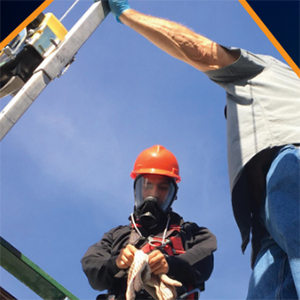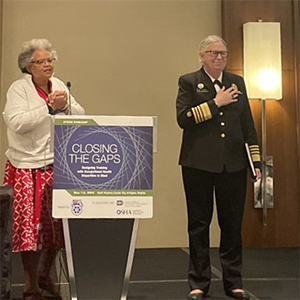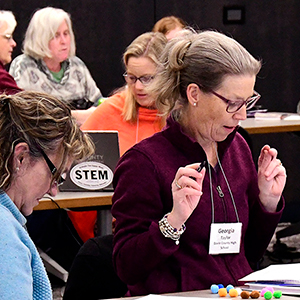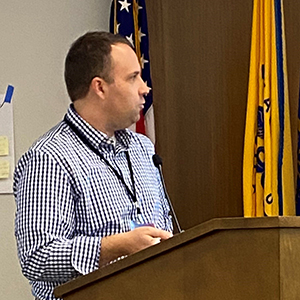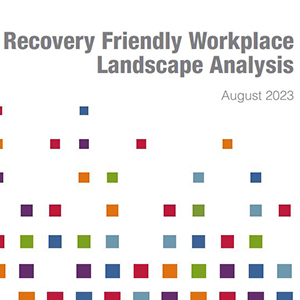Construction is traditionally a white, male-dominated field. One nonprofit organization, Building Pathways, has been helping to transform the industry by recruiting and training diverse workers for entry into the construction and building trades. During a Nov. 7 visit to Building Pathways headquarters in Boston, NIEHS Worker Training Program (WTP) Director Sharon Beard witnessed how the organization is using an innovative pre-apprenticeship model to deliver training and advance sustainable careers in construction.
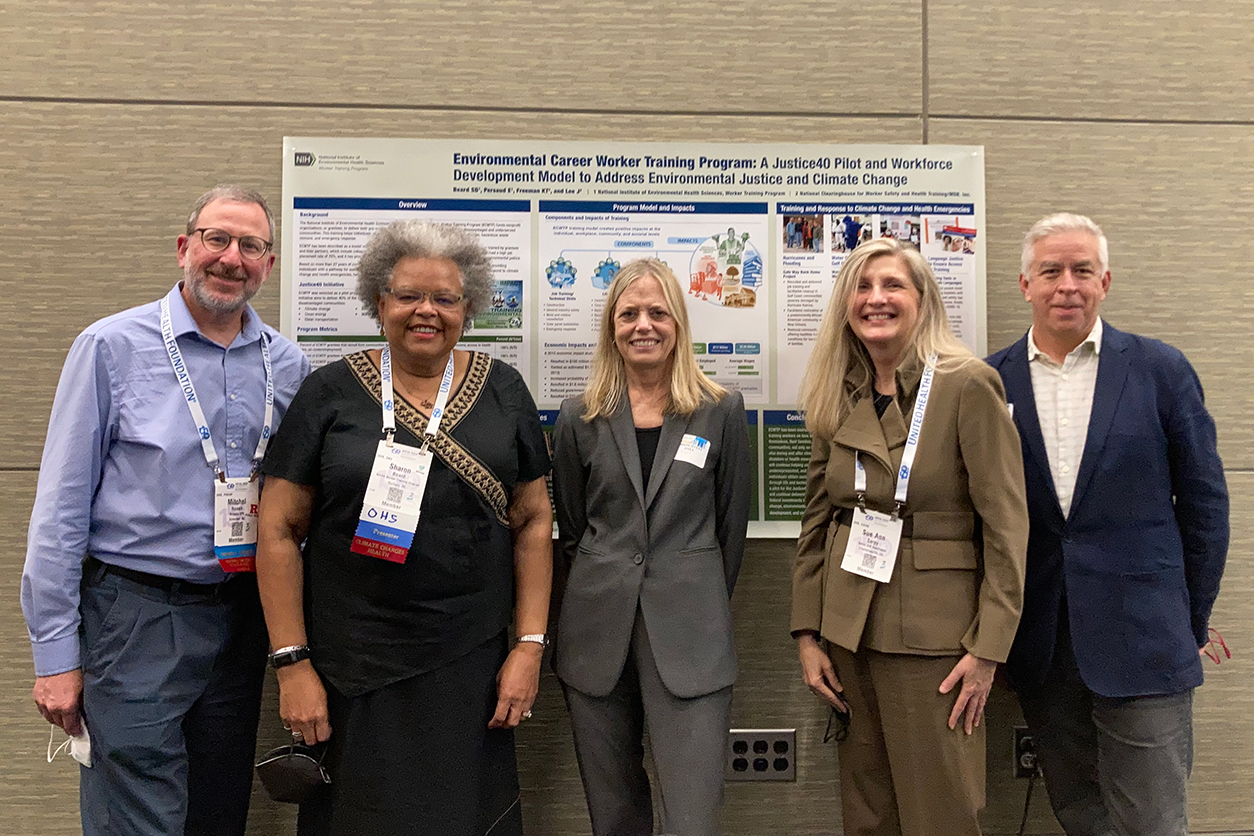 Beard (second from left) posed for a photo in front of the Environmental Career Worker Training Program poster with her co-panelists at the annual meeting of the American Public Health Association (APHA), held in Boston. Left to right: Mitchel Rosen, Ph.D., Sharon Beard, Mary Vogel, Sue Ann Sarpy, Ph.D., and David Casavant. (Photo courtesy of Allison Weingarten)
Beard (second from left) posed for a photo in front of the Environmental Career Worker Training Program poster with her co-panelists at the annual meeting of the American Public Health Association (APHA), held in Boston. Left to right: Mitchel Rosen, Ph.D., Sharon Beard, Mary Vogel, Sue Ann Sarpy, Ph.D., and David Casavant. (Photo courtesy of Allison Weingarten)Building Pathways is a partner of the Center for Construction Research and Training (CPWR), one of several grantees funded by the NIEHS Environmental Career Worker Training Program (ECWTP). ECWTP is a unique training program within the broader WTP that works to increase the number of disadvantaged and underrepresented workers in areas such as environmental restoration, construction, hazardous materials handling, and emergency response. Beard has conducted site visits with grantees and their partner organizations since ECWTP’s inception in 1995.
“The work Building Pathways is doing is incredible,” said Beard. “They are preparing women and underserved individuals for family-sustaining jobs in their own communities, and that aligns very well with the workforce development goals of the White House’s Justice40 Initiative.”
Reducing disparities in building trades
Women, especially women of color, have historically experienced hardships entering and remaining in stable and well-compensated construction careers. In Massachusetts, 10% of active construction-related union apprentices are women, and only 30% of those are women of color. A 2021 survey conducted by the Institute for Women’s Policy Research revealed that out of 2,600 tradeswomen and nonbinary tradespeople, more than 44% of respondents had left or seriously considered leaving the trades. Lack of respect and discrimination were the most cited reasons.
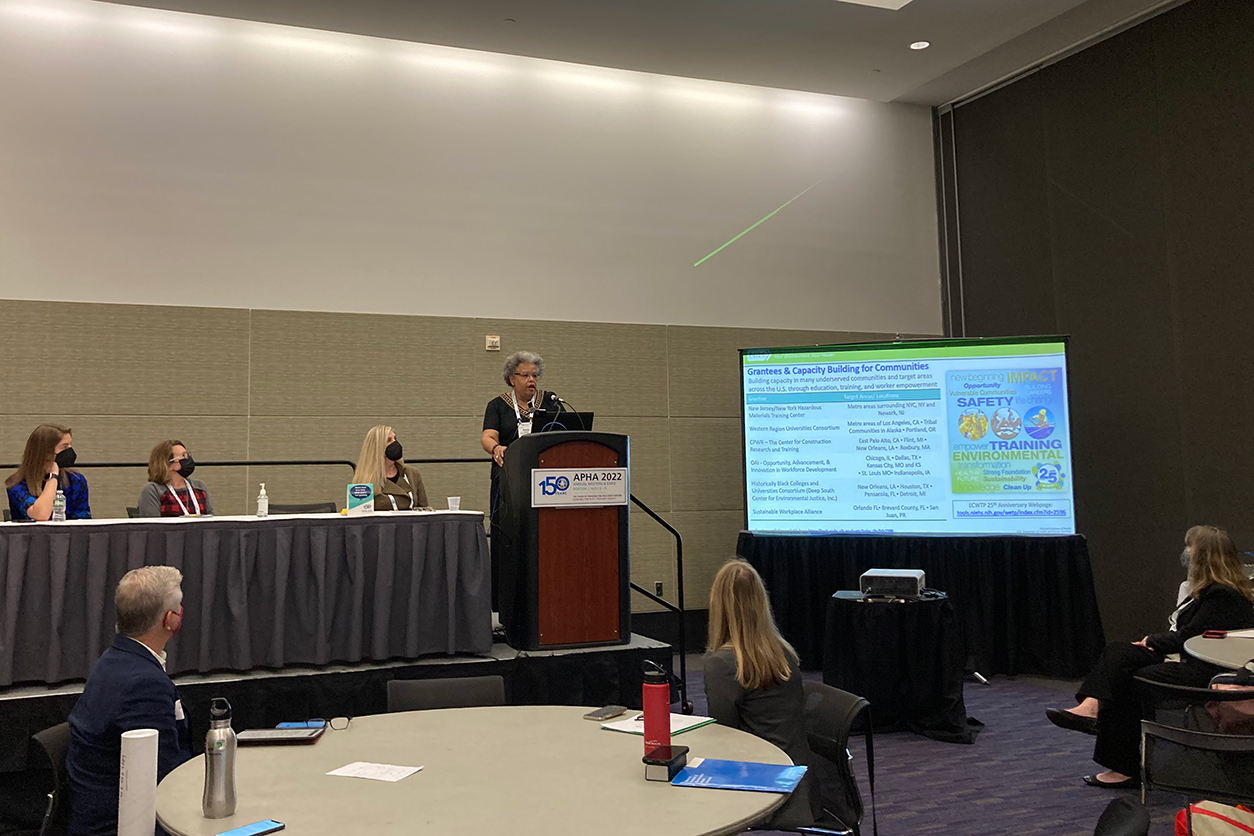 At the APHA annual meeting, Beard (at podium) presented work ECWTP is doing to advance the environmental justice goals laid out in the Justice40 Initiative. (Photo courtesy of Allison Weingarten)
At the APHA annual meeting, Beard (at podium) presented work ECWTP is doing to advance the environmental justice goals laid out in the Justice40 Initiative. (Photo courtesy of Allison Weingarten)Building Pathways heightens the visibility of tradeswomen, combats discrimination, and supports women and people of color entering the construction field. The organization accomplishes these goals through an integrated supply and demand strategy, in which they both create a pipeline of diverse workers and promote policies that enable career retention and advancement.
“These are life-changing careers that provide family-sustaining wages, great benefits, and a dignified retirement, and they don’t require a college degree,” said Mary Vogel, executive director of Building Pathways in Boston.
One of Building Pathways’s outreach campaigns, 'Build a Life That Works,' has attracted the attention of an estimated 2,700 Massachusetts job seekers, resulting in approximately 250 eligible women applying to a building trades apprenticeship program. More than 130 of these applicants were accepted into the apprenticeship and began working. Of those, 74% were women of color.
“We’ve definitely seen progress,” said Vogel. “In Massachusetts, the percentage of women in union building trades apprenticeships was around 4% in 2012, and now it’s over 10%.”
Pre-apprenticeships promote career readiness
Through their pre-apprenticeship program, Building Pathways offers career-readiness training and hands-on practice for trade-specific skills. These skills prepare trainees to compete for union apprenticeship program openings. Once trainees are accepted into an apprenticeship, they receive on-the-job training and begin earning wages and benefits immediately. Throughout the process, Building Pathways offers case management and referrals to assist trainees who need childcare, transportation, healthcare, and other support.
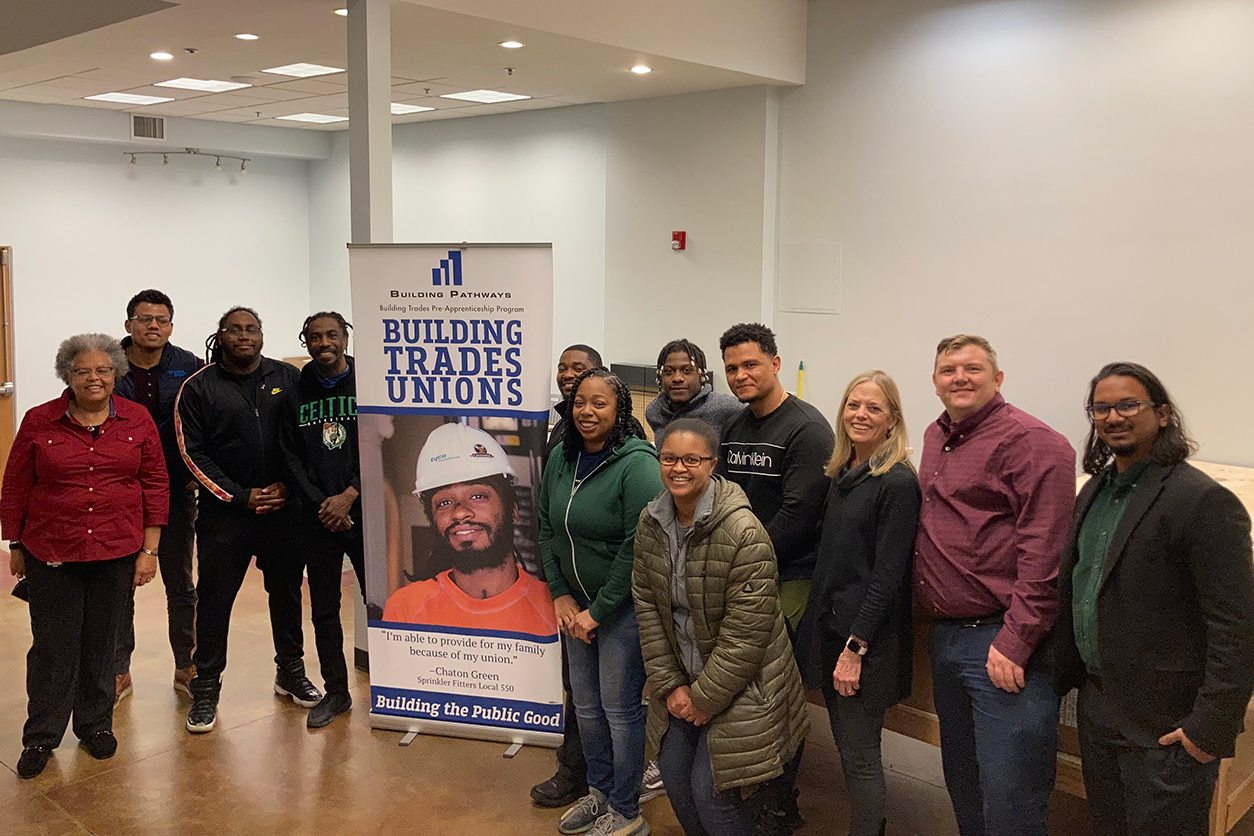 Beard (far left) met pre-apprenticeship trainees during her site visit to the Building Pathways headquarters. She was accompanied by Mary Vogel (far right). The trainees are scheduled to graduate from the program in December. (Photo courtesy of Allison Weingarten)
Beard (far left) met pre-apprenticeship trainees during her site visit to the Building Pathways headquarters. She was accompanied by Mary Vogel (far right). The trainees are scheduled to graduate from the program in December. (Photo courtesy of Allison Weingarten)During her site visit, Beard met with the Building Pathways fall 2022 cohort of pre-apprentices. The cohort is comprised of underemployed participants who take classes in the evenings and on weekends.
One trainee was attending a class about mathematics in construction the day Beard made her site visit. He explained that he entered the pre-apprenticeship program when he was laid off from a previous construction job. Now, he is exploring multiple trades he might enter after graduation and is looking forward to a more stable career with a pensioned retirement.
“You want to be in a program that has your back and can negotiate on your behalf, so that’s why I decided to come to Building Pathways,” he said.
Real-world results
Beard is proud of results from the Building Pathways pre-apprenticeship program and others like it that are offered through the ECWTP.
“Our programs are only as good as the jobs participants have at the end of their training and the stories they share,” she said. “When I hear ”Four people from my neighborhood were able to get jobs because of this training“ or ”I went from homeless to a six-figure job,“ it is just so gratifying.”
(Lee Cannon is a senior communications specialist at MDB, Inc., a contractor for the NIEHS Division of Extramural Research and Training.)





